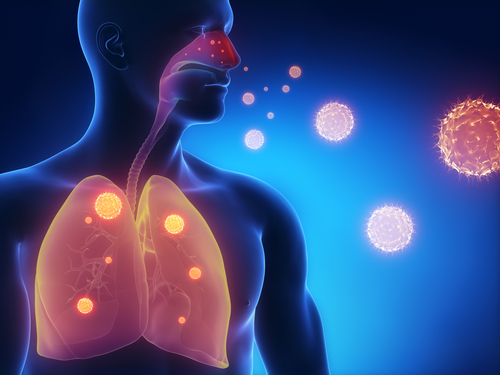 KaloBios Pharmaceuticals, Inc. announced that its potential treatment for Pseudomonas aeruginosa (Pa) lung infections was unable to meet the primary endpoint — “increased time to need for antibiotics for worsening respiratory tract signs and symptoms” — which when achieved indicates a decrease in the risk of developing pulmonary exacerbations. The company was evaluating KB001-A in cystic fibrosis (CF) patients, and these were the first results from its recent phase 2 study.
KaloBios Pharmaceuticals, Inc. announced that its potential treatment for Pseudomonas aeruginosa (Pa) lung infections was unable to meet the primary endpoint — “increased time to need for antibiotics for worsening respiratory tract signs and symptoms” — which when achieved indicates a decrease in the risk of developing pulmonary exacerbations. The company was evaluating KB001-A in cystic fibrosis (CF) patients, and these were the first results from its recent phase 2 study.
KB001-A is an anti-PcrV monoclonal antibody (mAb) fragment, which was being studied by KaloBios Pharmaceuticals in a randomized, double-blind, placebo-controlled phase 2 trial for the treatment of Pa lung infections. Even though the data revealed that KB001-A was generally safe and well-tolerated, the primary endpoint was not met, as announced by the company in a press release.
“The study did demonstrate a non-significant reduction in Pa titer in sputum measured post dosing and a 3% improvement in FEV1 (p=0.0029) at Week 16 for the KB001-A arm compared to placebo,” explained the Chief Medical Officer of KaloBios, Nestor A. Molfino, MD, MSc. “However, these effects were not accompanied by improvements in other clinically significant end-points such as exacerbations or symptoms.”
[adrotate group=”3″]
In addition, the company was also looking to assess the time patients needed for antibiotics in a number of pre-specified subgroup analyses — none of which revealed an improvement for KB001-A compared to placebo. The study also included other secondary endpoints like improvements in FEV1 and subject-reported outcomes according to the Cystic Fibrosis Respiratory Symptom Diary (CFRSD), which did not demonstrate an advantage in treatment using KB001-A.
“The KaloBios team is still collecting all of the patient data and working to further understand the results and plan to submit our comprehensive findings to a scientific meeting or journal,” added Molfino. The study included 182 volunteers with CF whose lungs were colonized with Pa when the study started, and who had been compliant in taking their antibiotics for at least the preceding two cycles.
During the study, the participants continued with their antibiotics during four of the total 16 weeks. In addition, the subjects were randomly administrated with either placebo or KB001-A dosed at 10 mg/kg every four weeks intravenously with one additional loading dose during the second week.
“We are very disappointed that KB001-A did not demonstrate a clinically significant effect on Pa infections in these CF patients, but we are thankful to all of them for volunteering to participate in this study,” said David W. Pritchard, KaloBios’ President and Chief Executive Officer. “Based on these top line data, we intend to discontinue our development of KB001-A in cystic fibrosis.”
The company hosted a teleconference Thursday, in order to clarify the discouraging results of the phase 2 study, which is now available on the Kalos website (here) for a period of 90 days. In addition, KaloBios has announced that is now redirecting its efforts for other research projects, including the study of cancer therapies.
“Going forward, KaloBios will focus resources and efforts on advancing our oncology programs,” added Pritchard. “Specifically, we are working to advance our KB004 oncology program as well as to expand the oncology development portfolio with the possible introduction of additional oncology indications for KB004 or for KB003, our anti-GM-CSF antibody. Currently, the KB004 Phase 2 cohort expansion study evaluating subjects with myelofibrosis, myelodysplastic syndrome, and acute myeloid leukemia is actively enrolling.”

